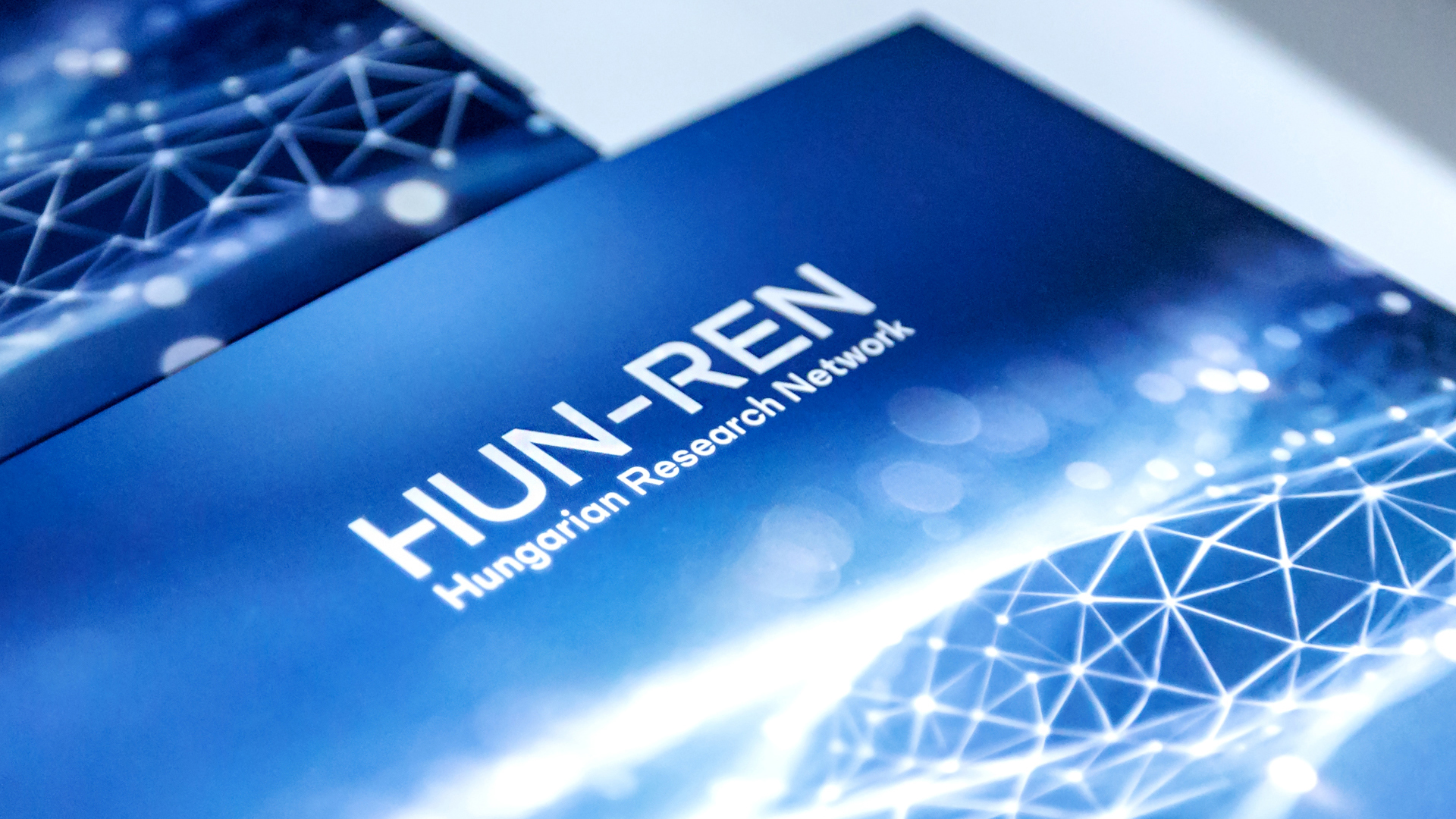EFFICIENCY, TRANSPARENCY, EXPERTISE – The Legislative Framework for the Renewal of HUN-REN
10+1 questions and 10+1 answers – an interview with Balázs Gulyás, President of HUN-REN

Fotós: Arpad Kurucz
1. The Hungarian Government has discussed the draft bill on the scientific research network and started consultations with relevant stakeholders. The draft law has already reached HUN-REN research institutes, allowing them to formulate their opinions. When and why did the preparation of the bill begin? What role did HUN-REN play in this process?
The process of renewing HUN-REN began at the start of this year, when a scientific and organisational review of the research network was launched, involving nearly 100 eminent scientists from Hungary and abroad. This process concluded in late summer, after several rounds of consultations with each institute. This is an significant step, not only because the research network has never undergone such a comprehensive assessment in its 75-year history, but also because we were able to involve outstanding experts such as Alexander Zehnder, Professor at ETH Zurich, one of Europe's top universities; Sir Philip Campbell, former Editor-in-Chief of Nature; Prof. Dr Ole Petter Ottersen, former Rector of the Karolinska Institute in Stockholm and the University of Oslo; and Eugene Dairianathan, former President of the Senate at Nanyang Technological University in Singapore. HUN-REN leadership and the research community discussed the results of the review at the end of September, after which I presented the key principles identified in that discussion to Minister Balázs Hankó, who pledged his support. In mid-October, the HUN-REN Governing Board issued a statement on the key elements of the new model. At that time, I asked Minister Hankó to have the Ministry of Culture and Innovation draft a bill in accordance with these principles and submit it to the Government. The Ministry's draft was discussed by the Government at the end of October, bringing us to the present, where HUN-REN research institutes can now review the draft. Cooperation with the Ministry has been close and active throughout this period, but—if I may say so—HUN-REN has taken the lead in this process, and it has been encouraging to see the Ministry's supportive approach. At the start of this process, I committed to keeping the HUN-REN community informed of progress, and we have honoured that commitment and will continue to do so.
2. How is HUN-REN involved in the consultation process for the draft law?
Today (7 November), we received the draft bill for review from the Ministry of Culture and Innovation. The HUN-REN community has one week to formulate its opinion, which I believe is sufficient time, as we have already had detailed discussions with the institute leaders on the key elements in recent weeks, and in some cases, we have also sought input from the entire research community. I have asked the Minister to ensure that the Government submits the draft to the Hungarian National Assembly during the autumn-winter legislative period, so that the new funding and asset management framework necessary for the renewal is secured in the 2025 budget. I have also undertaken to provide the Ministry with our feedback by 14 November. During the consultation on the draft law, we asked the heads of the research centres and independent institutes to compile the unified position of their communities and send it to the Governing Board. Of course, the review process is not only conducted in writing. On 8 November, we will also meet with the heads of the research centres in person to discuss their feedback and the text of the bill. If necessary, we will continue the consultations next week, as I believe it is extremely important to involve the research community and ensure that the bill presented to Parliament is one that our researchers can support.
3. What are the key elements of the draft bill?
If I had to sum it up in a few key terms, I would say: appreciation, measurable performance, efficiency, competitiveness, transparency, expertise – and strengthening all of these. One of the most important elements of the renewal is to create a stable, efficient organisation with a high degree of autonomy, in which our researchers can work under internationally competitive conditions. The organisational framework, defined within the independent HUN-REN Act, with its specific rules and outside the public budget system, reinforced by strong guarantees, will ensure this. This also implies that HUN-REN will continue to operate as a single legal entity, replacing the current 20 separate legal entities.
The draft bill also introduces a new, long-term, performance-based funding system for the organisation, with a substantial increase in public funding by HUF 18 billion (50 per cent) by April next year. By 2027, this support will reach double the current level, allowing for a significant increase in salaries. In addition to increasing operational funding, the Government is committed to providing the necessary infrastructure: it is dedicated to purchase the real estate currently owned by the Hungarian Academy of Sciences (HAS) and used by the research institutes and to transfer it to HUN-REN free of charge.
The Government provides the majority of the funding, ensures suitable working conditions, and guarantees the network's independence. In return, it asks only one thing: that the Hungarian Research Network works for the success, respect, and benefit of the Hungarian people. It should contribute to addressing the challenges facing Hungarian society, such as healthy ageing, environmentally friendly energy production, and water management in agriculture, while also achieving international recognition and respect.
The draft bill allows a tight but feasible timeframe for the organisational reform, with the new structure set to come into force on 1 April 2025.
4. How could the legislation directly affect HUN-REN researchers and other staff members?
Under the new organisational framework, HUN-REN researchers and support staff will be able to carry out their work more effectively, with greater respect for their contributions, and in a more professional environment. The research institutes will be able to focus on their substantive research activities. The proposed framework will provide them with all the necessary resources: buildings, funding, peace of mind, and predictability.
Starting from April next year, we will be able to significantly increase researchers' salaries by an average of 50 per cent, aiming to exceed an average gross monthly salary of HUF 1 million by 2027. This is a major step forward that will bring us closer to the salary levels of researchers in European countries. The current HUN-REN Headquarters will take on a support and service function, relieving the research institutes and researchers of administrative burdens. Of course, this will be done in line with the principle of subsidiarity, ensuring that the necessary powers for efficient operation remain at the level of the institutes and their leaders.
Based on the draft, the new HUN-REN will be the legal successor to the current institutions in all respects, allowing for a smooth transition. HUN-REN HQ and the institutes will have plenty to do in the coming months, but we are ready for the task: our primary focus over the next 5–6 months is to ensure a smooth and predictable transition.
5. Obviously, one of the most important questions is the level of budgetary support that can be expected for the operation of HUN-REN.
As I mentioned earlier, the current public funding for the research network of HUF 48.5 billion, will double to HUF 97 billion within three years. This means that while the network received HUF 17 billion in public budget support in 2020, it will receive nearly HUF 100 billion by 2027, excluding grants, corporate, and other revenues. This represents almost six times the current level of Government funding. All of this will be secured long-term through a public service financing contract between the Hungarian state and HUN-REN, providing an unprecedented level of institutional stability. Additionally, the Government plans to launch a research infrastructure development grant programme for the research network, with a significant budget exceeding HUF 20 billion. We have been preparing proposals for this over the past few months, and we hope that applications can be submitted soon. This funding will enable substantial development within the institutes.
But alongside the increase in funding, it is equally important that we can finally work in our own premises and manage our assets independently and responsibly, as the Government is committed to purchasing the properties from HAS.
When I add it all up and take into account the current budgetary environment, I consider it a huge success that we have managed to convince the Government that investing taxpayers' money in HUN-REN and Hungarian science and research is worthwhile. At the same time, this comes with great responsibility, which we must manage well in the coming years.
6. It is reasonable to ask whether the change in the operating model will lead to excessive centralisation.
On the contrary, we are relieving the research institutes of the administrative burdens currently imposed on them, while retaining all the powers necessary for swift and efficient research. These include, within the framework of the law and the new organisational structure, rights related to employment and work management, ensuring financial management, including signing contracts and agreements, the right to apply for grants independently, defining procurement needs, operating a performance incentive system, overseeing spin-off companies, and, of course, organising research activities – to name the most important aspects. These are essential for effective operation.
In addition, central support functions will be established – in areas such as financial management, HR, procurement, unified organisational management, and the adoption of modern technologies such as AI – to significantly enhance HUN-REN's overall operational efficiency.
7. How do you assess the system proposed by the draft bill in an international context?
International competition in research has never been stronger. We have to compete with countries that, due to their size, are able to devote significant resources to research and innovation – we must keep up with them. To do this, we need to continually evolve. Throughout my career, I have seen first-hand how the best research institutes around the world operate – from the UK to Belgium, Sweden, and Singapore. I know what we can learn from these institutions and which operational elements are worth adopting, given the specifics of the domestic environment.
As part of the renewal process, we not only carried out an in-depth assessment of our own institutional system but also studied more than 20 research networks from around the world, ranging from Europe to Israel and East Asia. We designed the new model to meet international standards. This is why we decided to advocate for a dedicated HUN-REN Act, to operate under a unified legal framework, and to create a long-term, performance-based funding environment. This is how the best research networks in the world operate, including those in Austria, Germany, France, Switzerland, and even Japan, South Korea, and Singapore. I believe we have proposed a competitive operational environment, even by international standards, and this is clearly reflected in the draft bill.
8. How do you envisage the evaluation of research in the new HUN-REN system? What evaluation criteria could be introduced once the law comes into force?
In the world of science, it is possible to measure who publishes how much, who is cited, who is involved in nurturing future researchers, and who has international collaborations, patents, spin-off companies, or market partners. Of course, we also know that, as in other areas, there are aspects of performance that are difficult or impossible to quantify. That is why we are considering a complex evaluation system, with particular emphasis on the so-called national scientific fields. We support researchers who deliver results.
It is essential that we provide a career path for researchers within HUN-REN, based on clear performance principles. This is a significant outstanding issue for the network: at present, each institute has its own model. We are determined to standardise this, while, of course, taking into account the unique characteristics of each scientific field. The most important thing is that we create a long-term, predictable career path that recognises performance and is highly valued.
In addition to scientific performance, the evaluation of researchers will place a strong emphasis on encouraging collaborations, while strengthening our relationships with universities and the business sector. Universities bring research closer to young people, while industry drives its application. Alongside national collaborations, we need to enhance international partnerships, and our researchers must play a greater role in nurturing future researchers, particularly in PhD programmes. We also need to give more attention to innovation, which has become a key focus in research institutions worldwide.
9. What role will the Government play in the proposed new system?
Under the new model, the Government will grant us much greater independence than under the current system, as HUN-REN will be removed from the public budget system and will become a private law entity with a special legal status. The Government will commit to increased, value-based funding for 25 years through a task-based funding agreement. According to the draft bill, the Government will establish the new HUN-REN and immediately transfer the founding rights to the HUN-REN Governing Board.
I would like to emphasise once again that the Government expects only one thing in return, as is the case everywhere in the world: HUN-REN should work for the success, recognition, and benefit of the Hungarian people, and contribute to answering the questions facing the community, in which research, science, and innovation play a central role.
10. What are the steps in the reform process over the next six months?
As I mentioned earlier, we have until mid-November to provide feedback on the draft bill, and we hope that the Government will submit the version endorsed by the HUN-REN community to Parliament by the end of November. If so, the National Assembly is expected to pass it this year, allowing the law to come into force in early January, with HUN-REN beginning operations under the new model from 1 April.
At HUN-REN HQ, we have already set up a programme office responsible for the transformation, overseen directly by our CEO, Roland Jakab. This unit will be tasked with preparing each step of the transformation over the next five months, in collaboration with the institutes. There are still several issues we need to discuss with the research community, and of course, we will continue to do so in the coming period, as we have done so far.
If all goes well, work under the new, more efficient organisational framework can begin on 1 April.
+1. How do you foresee the reform benefiting Hungary's scientific research network over the next five years?
Research, development, and innovation are strategic sectors for Hungary, as outlined in the John von Neumann Programme adopted by the Government and the National Assembly. As a country of ten million people with an open economy, we lack natural resources, a sea, and our industrial and agricultural potential is limited. However, if we are smart, we can achieve development. But it's not just our circumstances—our traditions also compel us: we are an intelligent nation, always seeking challenges and pushing for innovation. This is reflected in our ranking of 11th in the world for Nobel Prize winners per capita, 5th in medals in the International Mathematical Olympiad, and 9th in physics.
Therefore, it is crucial for HUN-REN to play a leading role in research and innovation. As a result of this renewal, we aim to ensure that within five years, the research network will not only compete scientifically but also in terms of innovation with the best research networks in Europe and worldwide, becoming a central actor in Hungary's innovation ecosystem, deeply embedded not only in the national economy but also in the international research arena. Our researchers will be able to carry out their work under competitive infrastructure and financial conditions, and we will inspire young people to choose careers in research. In doing so, we will help retain the most talented young people in Hungary, attract those working abroad back to the country, and draw talent from around the world.

